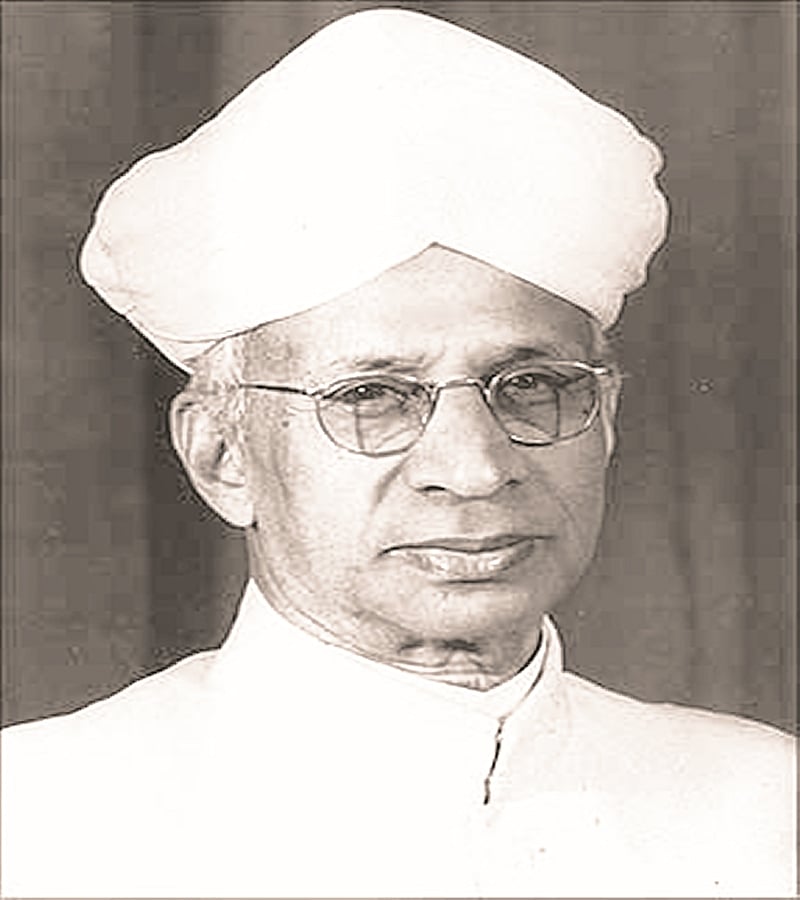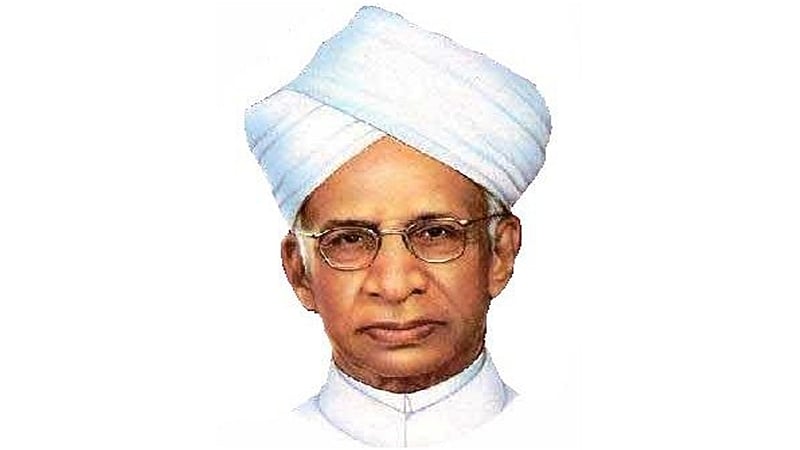Sarvepalli Radhakrishnan was one of the greatest Indian personalities and most distinguished twentieth-century scholars of comparative religion and philosophy.
Sarvepalli Radhakrishnan was born on September 5, 1888. He belonged to a Telugu-speaking Niyogi Brahmin family, in Tiruttani of Chittoor district.
The recipient of Bharat Ratna in 1954, Sarvepalli Radhakrishnan has left a huge mark in the education structure.
Radhakrishnan believed that "teachers should be the best minds in the country." He was an institution himself, who bestowed his knowledge upon many.
On the 134th birth anniversary of Sarvepalli Radhakrishnan, here are some of the interesting facts about him:
1. He was appointed as a Professor of Philosophy at the University of Mysore in 1918 and then in the King George V Chair of Mental and Moral Science at the University of Calcutta 1921. Followed by Spalding Professor of Eastern Religion and Ethics at University of Oxford (1936–1952) by which he became the first Indian to hold a professorial chair at the University of Oxford.
2. For him, education was the foundation for everything. Since 1962, his birthday has been celebrated in India as Teachers' Day.
3. Radhakrishnan served as the first Vice President of India from 1952 to 1962 and the second President of India from 1962 to 1967. He is the only President of India who could not attend the Delhi Republic Day parade due to his ill health.
4. Radhakrishnan was awarded scholarships throughout his academic life.
5. When India became independent in 1947, Radhakrishnan represented India at UNESCO and later became the Ambassador of India to the Soviet Union, from 1949 to 1952.
6. He enlightened his wisdom with The Spirit of Abheda, Advaita Vedanta. He was also honoured with the Knight Bachelor title, which is ceased to use the pre-nominal of Sir in 1947 following India's independence.
7. Radhakrishnan got married to a distant cousin, Sivakamu, at the age of 14.
8. He was the Vice-Chancellor of Andhra University from 1931 to 1936.
9. He was a bridge-builder between India and the West who shaped the understanding of Hinduism, in both India and the West.
10. Radhakrishnan believed Tagore's philosophy to be the "genuine manifestation of the Indian spirit" and wrote his first book, 'The Philosophy of Rabindranath Tagore'.













